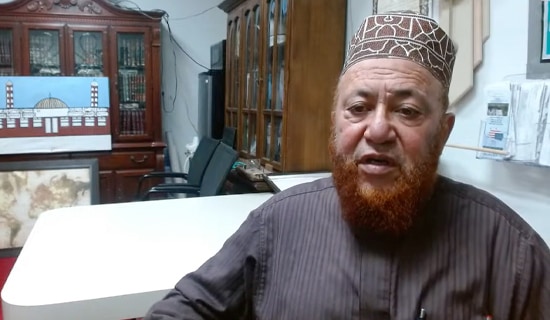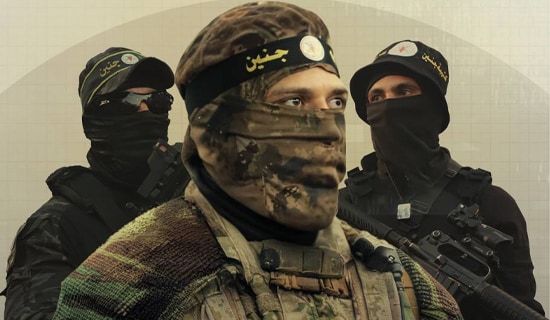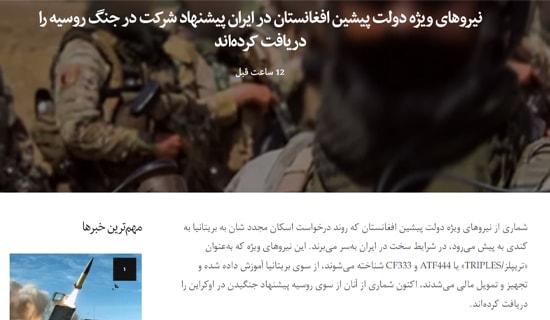Since the murder in early October of Saudi journalist Jamal Khashoggi, and with the daily publication of foreign media reports on Saudi involvement in the affair, many articles are appearing in the Saudi media expressing rage at what they called a hostile media campaign against the Saudi kingdom waged by Qatar and its Al-Jazeera network, and the global media.
Along with these articles, however, the Saudi press has also published articles criticizing
This report will present some of these articles.

Saudi papers (image:masrawy.com)
Saudi Journalist: Establish A Foreign Informational Network To Advance The Saudi Point Of View
Dr. Sa'ud Al-Musaybih wrote, in the Saudi Al-Riyadh daily, that the global media discourse on the Khashoggi affair and on other issues involving Saudi Arabia were hostile the kingdom. He called for tackling the problem with the establishment of a foreign information authority to initiate and coordinate media activity by various elements in
"It is vitally important [that Saudi Arabia] establish a foreign information authority connected to the [Saudi] Council for Political and Security Affairs whose authorities and [media] approach will be drawn from the wise [Saudi] leadership and from the foreign policy that the Council oversees.
"The [global] media is sweepingly anti-Saudi in various matters…, the latest of which was the affair of Khashoggi's disappearance. This affair demonstrated the hostile [anti-Saudi] media's control and its influence on [its target] audience can be seen everywhere. This is grave and dangerous because psychological warfare begins with the media and its control over minds and trends.
"Accordingly, the proposed foreign information authority will unify the media approach vis-à-vis the outside world. It will overcome the contradictions and the lack of coordination between the relevant elements and ministries, and it will have the authority to build relationships with writers and intellectuals, with foreign [i.e., non-Saudi] elements in every foreign country, and with various satellite channels. Likewise, it will be able to establish a crisis management center that will provide information, unify the information program and prevent [reporters from presenting their own] personal commentary. It will have lists of intellectuals and thinkers, both Saudi and non-Saudi, who love us and who will appear on foreign television programs. Likewise, instead of the current confusion and lack of coordination, it will be possible to urge new-media celebrities to disseminate messages reflecting the Saudi point of view in an ongoing manner..."[1]
Saudi Writer: Saudi Journalism Has Failed; We Must Invest In Media Like We Invest In The Military
Another call for
"Perhaps this hostile media campaign against the [Saudi] kingdom is an opportunity for the Saudi media to reexamine its capabilities, its tools, and the arenas in which it operates. When you read the Saudi [print] media, you see that it consists of two parts: the internal Saudi media, whose language and discourse [has not been updated] since the 1980s, and the Saudi [media operating] abroad, which addresses all the other Arabs in language that they do not understand and provides them with content that they do not need. Beyond that, there is no Saudi media.
"Following the foreign television and media – CNN, the BBC, Russia Today, Fox News, and others – we feel, with our national sense, that these channels have been infiltrated [by anti-Saudi elements] and are being aimed against us. I do not know how accurate our sense of this is, but there is no doubt that if there is such infiltration it did not happen a week before the current anti-Saudi campaign, and it was not done by means of temporary agreements. Infiltration operations are like weapons purchases – you don't rush to buy weapons a week or two before the war. Your weapons can become obsolete before you need to use them, and therefore it is vital to [obtain] state-of-the-art weapons ahead of the decisive moment... [Likewise,] establishing a large media force in the world is expensive, but [its presence in] crucial moments which cannot be predicted make the expense worthwhile... [What applies to] an army applies also to a media force: It is not enough to acquire the most advanced technology and the finest equipment and satellites if media members are not skilled and expert and do not have a global point of view... Anyone who is following the evil campaign that
Saudi Columnist:
In his column in the Saudi Al-Jazirah daily, journalist Muhammad Aal Al-Sheikh wrote that despite
"Social media is one of the most important reasons for the spread of populism, but it lacks the credibility, the professionalism, the content analysis, and the influence of traditional communications media... We are indeed strong on Twitter, and through it we have successfully crushed our opponents; with tweets we have also clearly revealed the extent of the Saudis' patriotism and their rallying around their leadership. However, what is happening in this arena is only a [small] stream [for news], whereas the traditional media are still the river [through which the main news flows], and I imagine that this will continue to be the case in the future.
"The affair of Jamal Khashoggi's disappearance will blow over, sooner or later – but we have learned two lessons from it. The first is that
Saudi Writer 'Izza Al-Subay'i: We Have No Impact On Public Opinion; Where Have All The Saudi Writers Gone?
Like Aal Al-Sheikh, writer 'Izza Al-Subay'i criticized Saudis' extensive focus in influencing public opinion on Twitter versus the lack of a Saudi presence in other media arenas. She noted that the Khashoggi affair had brought to light the Saudi inferiority in the traditional media – including the dearth of writers and intellectuals who tackle the issues of the day wisely and seriously. Thus, she said, the Saudi journalists who once wrote for the Saudi press but have been silenced need to be brought back:
"It has been several years since this network [Twitter] has become a preferred arena for the Saudis, and their immersion in it almost makes you think that they do not differentiate between it and reality. Furthermore, they have reached the point where they think that it can achieve global victory for them in any campaign against them. But the truth is that, as far as the world is concerned, Twitter is the backyard where we rest after work...
"All the news reports on the international channels are based on journalistic reporting, and on articles, not only on tweets... Thus, the important question is, where have the Saudi article writers gone? Where are the respected journalistic articles, the discussion programs that are not run by an emotional host enveloped in the kingdom's flag, or who makes jokes when serious topics are discussed...
"Where are the objective articles based on reliable national sources that provide them with material for writing, like in the [rest of the] world? Where are the writers who can show the world the reasonable Saudi face and words of wisdom that can bring down the claims of the enemy, replying to them so politely that even the enemy will appreciate it, and that everyone who hears them will applaud them?
"I know that all these are questions that are hard to answer, and they are also exhausting. But the answer is actually quick and easy. There are dozens of columnists who can and are willing to write, in all languages, and I think that when they are asked to they will be willing to come back to their newspapers and their columns that have been silenced."[4]
Saudi Writer: The State Institutions Did Not Do Even The Minimum Required Of Them In This Affair
Journalist Hamoud Abu Taleb attacked the performance not only of the Saudi media but also of the Saudi state institutions, including the Shura Council, the Foreign Ministry and the foreign minister himself, whose voices, he said, were totally absent. The following are excerpts from an English translation of his article published October 22, 2018 on the English-Language daily Saudi Gazette.[5]
"With the launch of vicious attacks against Saudi Arabia over the Jamal Khashoggi incident, one would ask, 'what did the related departments do to resolve the matter?' .For example, did the Shura Council hold a special session to discuss the matter, then decide to send delegations to visit the parliaments of countries that attacked Saudi Arabia to explain the Kingdom’s stand and the procedures it had taken? Did the Foreign Ministry assign its specialized departments and its embassies in those countries to meet with political leaders and conduct press conferences to explain the true picture? Did the Ministry of Media activate the role of the press attachés abroad to communicate with the media and present the Saudi side of the story?
"These departments did not do [even] the least that they could have done in a sensitive situation like this. They have done nothing more than issuing routine reports targeting the local audience and the local media, as if the crisis was happening within the country and not abroad. [These] vicious campaigns required quick countermeasures using effective tools. What is strange is the absence of the voice of the foreign minister, who proved effective and strong during the United Nations General Assembly a few days ago. He is a voice that we trust and he has great skills to respond to his opponents.
"The slack performance of some departments here is harming our country. We criticized the reactions or lack [of] reactions by some of our thinkers, writers and intellectuals to important issues on many occasions in the past. This time we are witnessing very bad performance on the part of officials and responsible departments…[In fact,] we can say instead of bad performance [that] it is a total absence.
"We know that the general policy of the Kingdom of Saudi Arabia is not to rush and get excited in ambiguous cases such as that of Khashoggi. But there are initiatives that can taken within this framework and without going against the time-tested Saudi policy.”
[1] Al-Riyadh (
[2] Al-Riyadh (
[3] Al-Jazirah (Saudi Arabia), October 19, 2018.
[4] Al-Watan (Saudi Arabia), October 19, 2018.
[5] The article has been slightly edited for clarity. Its Arabic version was published on October 17, 2018 in the Saudi daily 'Okaz.





